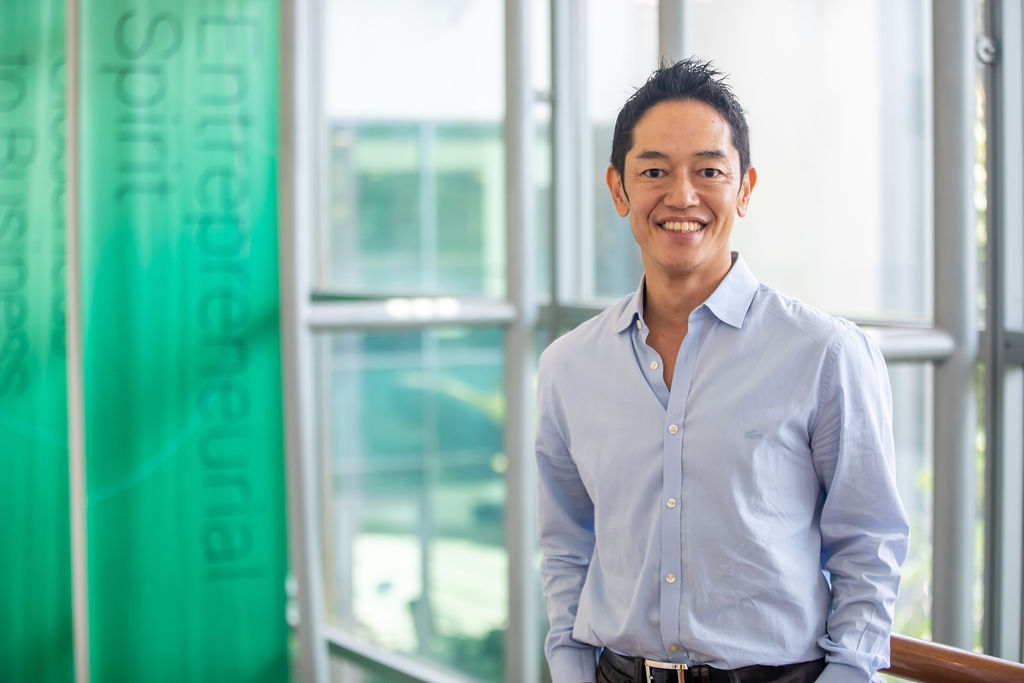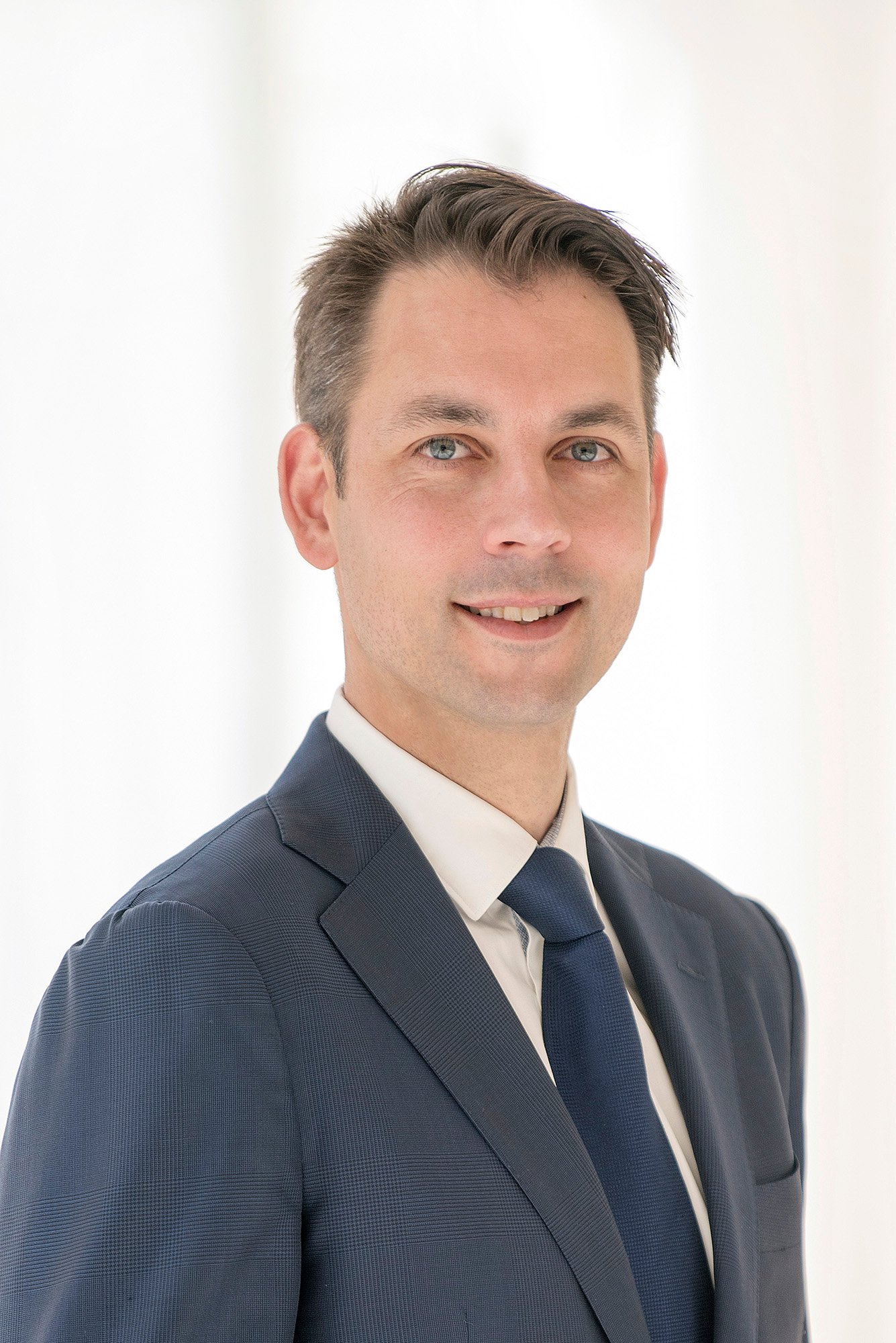The INSEAD Executive Master in Change programme was the best fit because of its balance between increasing self-awareness and acquiring a greater understanding of human behaviour and organisational dynamics.
Jos Blom

Can you tell us a little bit about your personal and professional background?
I currently live, together with my wife, in Achterveld, a small community in the heart of the Netherlands. I love being active outdoors and immersing myself in nature, especially diving and mountain biking, as well as enjoying good food (prepared with care in quality restaurants or by myself on a barbecue).
I currently lead the R&D Group within Fullwood Packo. Following restructuring of the company in 2016 and 2017, I have been rebuilding the R&D organisation. This includes resolving legacy problems and building a high-performing team with the capacity to deliver complex, high-tech solutions, critical to the success of the business.
What made you decide to pursue the EMC at INSEAD?
When I started my career as an engineer, I learnt how to work with very complex technical problems, something I very much enjoyed. But over the years, as I began working more with others, with teams, and the wider organisation, I realised that my interest actually lies in the human side of organisational life.
I am passionate about developing organisations, teams, people, and technology. I strongly believe that understanding what it takes to transform oneself is a critical success factor in transforming teams and organisations.
Step-by-step, I am learning to engage with my deeper inner-self, becoming aware of how to increase my presence and gain more freedom in choosing how to respond in interactions with others.
I attend training programmes, coaching sessions and, being naturally intellectually curious, I am exploring various psychological disciplines. I have been looking at different Master’s programmes focused on change management and organisational transformation, seeking a course that matches my experience, personal interests, and professional ambitions. The INSEAD Executive Master in Change programme was the best fit because of its balance between increasing self-awareness and acquiring a greater understanding of human behaviour and organisational dynamics.
What are your goals post-EMC?
My goals are to enjoy life and continue to learn, develop, and grow as a person and professional.
I want to make optimum use of my talents, intelligence, and knowledge in order to develop healthy, sustainable, high-tech international businesses in which people can flourish.
My ultimate goal is to inspire, facilitate, and give others the space to discover and get the best out of themselves, so that they, in turn, can inspire, facilitate, and give others space to do the same.
You recently completed module 2. What are your impressions of the classroom atmosphere, the content, and your classmates?
The classroom atmosphere, which includes the people on campus as well as on Zoom, is very special. I feel really at home and at a level that I have never really experienced before. You’re basically in a bubble, not distracted by your day-to-day business, together with a very diverse group of people from all over the world who have the same strong interest, curiosity, and passion.
The EMC is a safe space in which to discuss deeply profound and personal topics, and somewhere to become aware of many different things that have been hidden in your subconscious all your life. This can be very challenging, sometimes even uncomfortable, but that is what I am here for. After all, I want to grow as a person.
Have you already been able to use some of these new insights and tools in your professional or personal life?
Oh yes, immediately! As I mentioned earlier, I was already studying these topics before I embarked on the EMC but now this process has become greatly accelerated.
To give an example: I may be having a difficult conversation in my private life or at work, and I notice that I’m struggling, that my energy is drained afterwards, or I may become aware of my flight response. When these things happen now, I can recognise what is happening and see a difference between how I used to respond and how I deal with situations now.
Before, I wasn’t aware; but now I understand what is happening and I can stay in the present, continue the discussion, and be much more effective. This gives me an immense sensation of freedom, or perhaps a better word is relief.
That sounds fantastic, can you tell us a bit more about this process?
You are basically a product of your past, shaped by your parents, as they were shaped by theirs. Moulded by events that you experienced during your childhood.
The EMC can you help you to become more aware about how you respond to certain situations, and how you shape interactions with other people.
You can start to differentiate between what behaviour or which emotions are triggered by what you have learnt in the past, and what is authentic and true to you.
One of the first exercises we did in module one was to draw a symbolic picture to represent ourselves. I drew a circle with wings, with ropes and lines connected to it. And now I feel like I am breaking these shackles one by one. The more I unlearn these old defence mechanisms and coping strategies, which are no longer effective today and which are masking my true self, the more freedom I gain. But I recognise that this is a process that will take a long time.
In fact, the EMC experience aligns well with one of my favourite quotes by Carl Jung: “The privilege of a lifetime is to become who you truly are”.
And what are your impressions of the Programme Directors?
As a student, you probably only see the tip of the iceberg, but I think they are extremely knowledgeable. I really like to learn from their experience and the examples they give us, which is something they do really well. But they also have a profound understanding of how to create the right atmosphere for the group, which I appreciate a lot. They have the ability to give space to whatever needs to emerge in the class. For example, sometimes you may be discussing certain topics and then someone brings up an example from their life, or someone else is struggling with something, and that’s when very valuable conversations occur.
So, I think the Programme Directors strike a great balance between setting the boundaries to create a safe space, and having a clear agenda about which topics they want to discuss in each module.
Lastly, what advice do you have for people out there who may be currently reading about the programme or considering whether this is the right programme for them?
I think it’s almost impossible to understand or truly comprehend upfront what the programme is about and what you will get out of it. But I think if you read about the purpose of the EMC and the high-level descriptions of the modules and you feel your pulse quickening, or if your intuition tells you that this is something you’re attracted to, and you get the opportunity to do it, then don’t hesitate - just do it.




